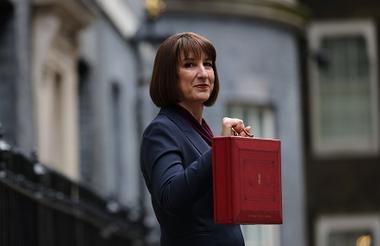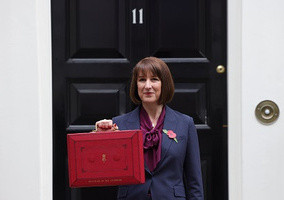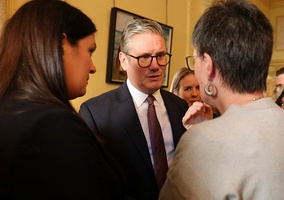Civil society umbrella organisations have voiced concern over the impact on charities of the government’s increase to employer national insurance contributions, announced in yesterday’s budget.
NCVO, ACEVO, Charity Finance Group (CFG) and New Philanthropy Capital (NPC) all issued responses to chancellor Rachel Reeves’ first budget.
Most welcomed Reeves’ announcements of increased funding to the NHS, schools, and social care, and shared sentiments of the new government being more open to working with the sector than its predecessor.
However, sector bodies warned that an increase in minimum wage rates and employer national insurance contributions would intensify financial pressures on many charities as they already struggle to cope with rising costs.
Meanwhile, the independent Office for Budget Responsibility has estimated that employer national insurance changes will result in “an average annual tax increase in excess of £800 per employee”.
The announcements come as NCVO and ACEVO continue to work with the government on the Civil Society Covenant, which is expected to set out a new working relationship between charities and the state next year.
NCVO: ‘Another strain’ on sector
NCVO chief executive Sarah Elliott said: “Charities across the country are in a dire situation, juggling a triple threat of rising demand, escalating costs and falling funding.
“An increase in employer national insurance contributions will place another strain on charities.
“The voluntary sector employs around one million people, so the impact of this increase will be felt heavily across charities of all sizes, with many already making difficult operating decisions.
“The announcement of long-term investment in services designed to improve the lives of people, is always welcome.
“But years of austerity have left charities who deliver many of these local public services, facing uncertain futures.
“We need to ensure money for improved public services flows to charities so they can continue to support the communities who rely on them.”
ACEVO: ‘Triple whammy’ impact on charities
ACEVO chief executive Jane Ide said: “We are deeply concerned about the impact the triple whammy increase in employers’ national insurance contributions, reduction of the threshold at which employers need to pay and increase in the national living wage will have on civil society organisations and the work they deliver.
“Civil society leaders have very limited choices to make in how to manage these significant increases in operating costs. The harsh reality is that many organisations may be forced to reduce staff, cut salaries, and, most importantly, scale back services for the very people they strive to support.
“If civil society is to partner with government in delivering the decade of national renewal, as the prime minister invited us to, it is important that civil society is strong and able to play its part and yet the changes announced today will affect the resilience of civil society and its vital role as a trusted partner in helping the government achieve its vision.
“We very much value the commitments from the prime minister and the secretary of state, Lisa Nandy, to collaborate with the sector through the Civil Society Covenant and are engaging with government officials to discuss the ramifications of these announcements.”
CFG: ‘Nothing’ in budget to support sector’s financial sustainability
Caron Bradshaw, CEO of CFG, said: “While the increase in national living and national minimum wages will be welcomed by most, when coupled with an increase in employer national insurance contributions, these rises will put significant financial pressure on many charities.
“Charity leaders will be looking at this budget and asking themselves what they can do to keep the doors open to the people and communities they serve.
“The financial pressures and demands on the sector have long been documented. However, there was nothing in the budget that will directly support their financial sustainability.
“It is positive that the chancellor has recognised that longer-term thinking and planning is needed but, in the immediate and short term, the sustainability of many charitable organisations remains a very real concern.
“With operating costs – especially around staff – rising sharply, and no evidence that the government’s investments will reduce the demand and pressure on charities any time soon, many charity leaders will be left wondering how to balance their own budgets whilst continuing to support those who rely on them.”
However, Bradshaw also added: “If there’s a bright spot to be found, it’s that we sense the new government and the charity sector are now starting to speak the same language.
“We welcome, for example, the £11.2bn increased investment in education, including £1bn for special educational needs, and £22.6bn for the NHS.”
NPC: ‘Some positive signs for charities’
NPC policy manager James Somerville said: “Today’s budget included some positive signs for charities and, more importantly, the people charities serve.
“Investments in public services, an increase in the minimum wage, and the limits on universal credit debt repayments – these should reduce demand pressures on charities by improving people’s living standards.
“But other measures may add further pressures on the sector’s finances.
“The increase in employer national insurance contributions will disproportionately affect employers of lower-wage workers. Coupled with the rise in minimum wage, this will hit some charities hard.”












